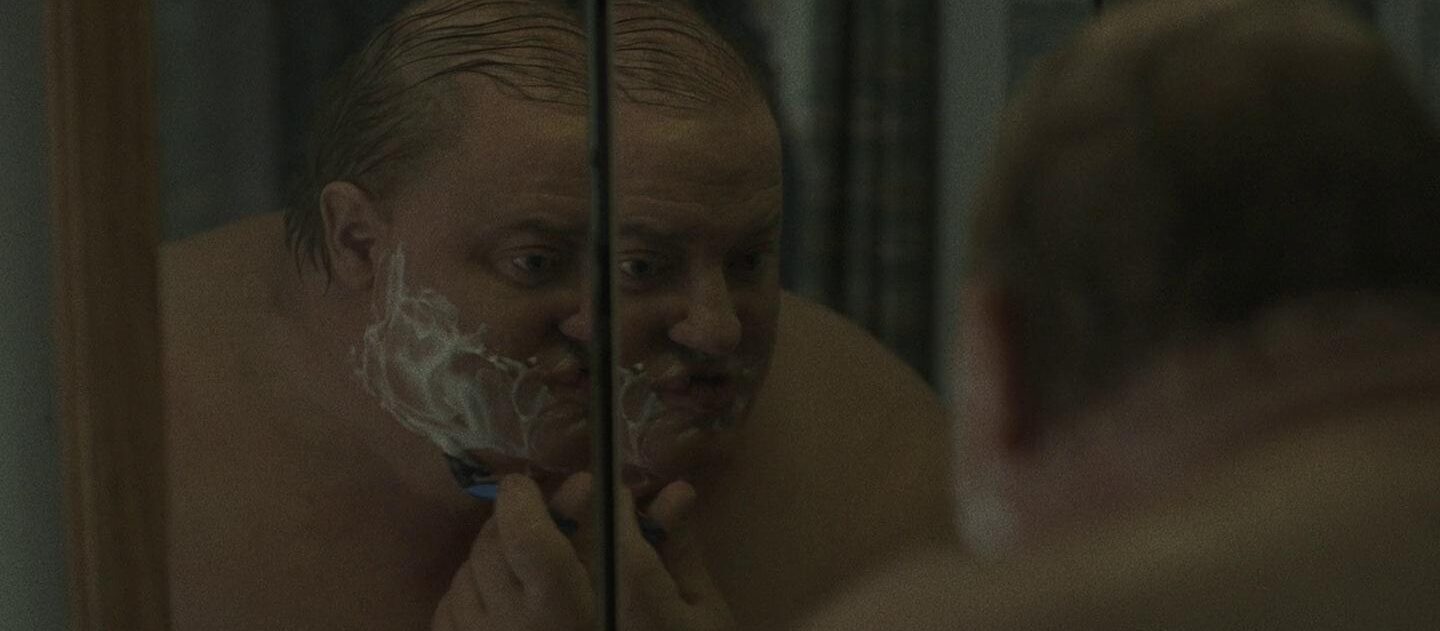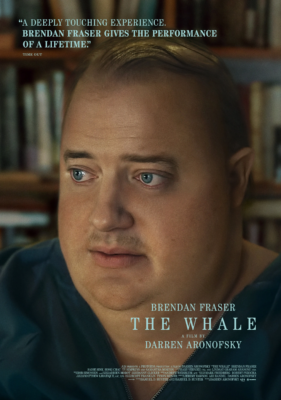

“I’m sorry.”
At the height of the COVID-19 pandemic, every film studio was looking for viable scripts with small casts and limited location changes. Some of them embraced masks and social distancing (Kimi), but others simply sought to tell engaging stories that would work without the reality of the virus looming in the background (The Guilty). The most high profile of these so-called “COVID films” was Darren Aronofsky’s The Whale, which polarized critics, grossed almost 20x its budget, and brought home a couple of Academy Awards
An emotive small-scale drama in the mold of Ingmar Bergman (Winter Light, Cries and Whispers), it is anchored by Brendan Fraser’s widely-praised performance as a morbidly obese online instructor whose final days are spent trying to reconcile with his estranged, bratty daughter (Sadie Sink) and come to some sense of closure regarding the death of his lover, for whom he left his wife (Samantha Morton) and young child some years prior.
There has always been a vulnerability to Brendan Fraser, even when he was doing beefcake roles like George of the Jungle and The Mummy, and it is a sense of desperate humanity peeking out from his layers of prosthetics that establishes the film’s tone. He has sinned and knows it, but doesn’t regret it, just the side effects. He craved suffering and he got it, now his ailment—the result of an eating disorder triggered by his lover’s death—has brought him to a strange, pseudo-enlightened emotional state, and he is earnestly seeking for connection and meaning, whatever those can look like for a man who has all but destroyed his relationships and his health. He wants to be seen not as a grotesquely fat homosexual but merely as a human being with dignity, just as the rebellious daughter, the compassionate caretaker (Hong Chau), and the door-to-door apocalypse cult proselytizer (Ty Simpkins) all reveal layers that a first impression does not show.
Adapted by Samuel D. Hunter from his own stage play, the film’s flaws mostly stem from its screenplay: its waffly handling of religion, specifically in the way it uses equivocations and hand-waving hermeneutics to sidestep any meaningful conversation; its repetition of basic conflicts between characters; its self-serious, self-consciously literary, intertextual references to Moby Dick.
Compared to the passably organic relationships connecting most of the characters, the missionary tends to feel grafted into the script in order to provide a sounding board for the author’s shallow theological convictions. The obese man’s obstinate refusal to use his substantial savings on healthcare, as well as his cheerfully self-destructive behaviors, suggest a morbid fascination that undermines the empathy we are seemingly supposed to feel. It’s only when Fraser and Chau are the only actors on screen that there’s any sort of psychological depth—a testament to the actors’ talent but also a condemantion of the weak characters elsewhere.
Nevertheless, the film does a good job of making the protagonist’s impending demise and multiple reckonings (father and daughter, husband and wife, man and God) feel like a pocket apocalypse. If the man’s logic seems cloudy, if his life choices and end-of-life choices are inexplicable and contemptible, and if the mechanism of his personal catharsis is somewhat silly, Fraser’s commitment to defining the character’s desperation ensures that the brink-of-death ecstatic transcendence he experiences strikes with excruciating sadness.
I think that the intention is for us to buy into his self-martyrdom and believe he found redemption, but I found his lack of self-awareness and stubborn insistence on his own sins to elicit an unintended heartbreak. His cathartic spiritual triumph is not earned by the screenplay, even if Aronofsky’s conviction seems to be that his self-inflicted misery will automatically result in glorification. It feels a little bit like a fat-exploitation film, and I don’t think anyone involved wanted it to be that.